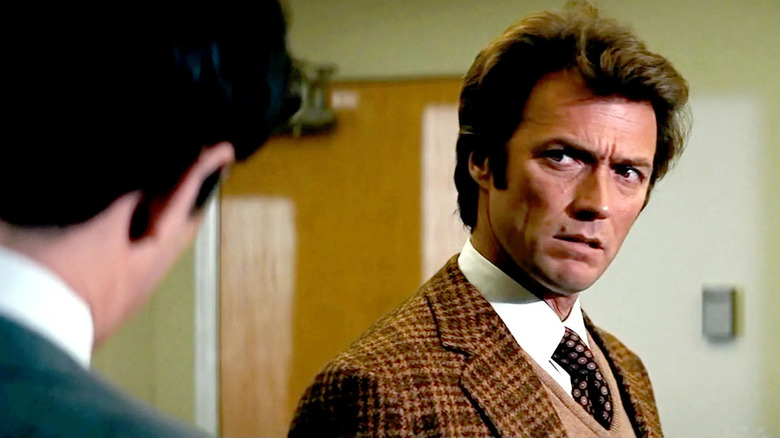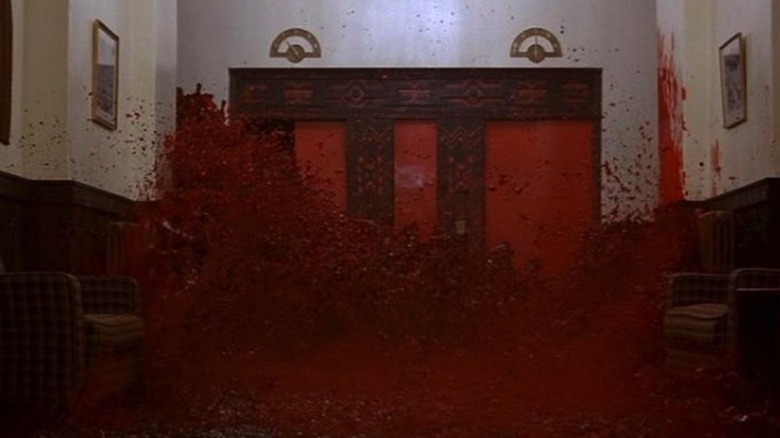The Stephen King Movie Adaptation Clint Eastwood Called 'A Giant Failure'
At the dawn of the 1980s, Warner Bros. had two major in-house artists who could do just about anything they wanted. One was a movie star, the other a filmmaking genius, and they couldn't have been more different in aesthetic or temperament.
Clint Eastwood was a television star who found big-screen success by making Spaghetti Westerns in Europe with an upstart named Sergio Leone before becoming the avatar of the angry, Miranda rights-burdened American police officer as "Dirty Harry." Stanley Kubrick was a Bronx born-and-bred autodidact who found his love for filmmaking via photography; after a string of critical successes with "Paths of Glory," "Loilita" and "Dr. Strangelove or: How I Learned to Stop Worrying and Love the Bomb," he was hailed as a visionary for the groundbreaking "2001: A Space Odyssey," upon which he became renowned for his perfectionism and technical boundary pushing.
We like to play the "what if" game with legendary director and actor pairings around here, but there is almost certainly not an alternate universe where Eastwood and Kubrick hooked up. Unlike Kubrick, Eastwood liked to work quickly, shooting very few takes and moving on, whereas the meticulous auteur could shoot over 100 takes to get whatever it is he thought he needed. These fellas were not simpatico.
So it's no surprise Clint Eastwood hated "The Shining," and didn't mind saying so on record.
Eastwood did not consider The Shining a masterpiece of modern horror
In a conversation reprinted in "Conversations with Clint: Paul Nelson's Lost Interviews with Clint Eastwood, 1979-1983," Eastwood tore into Kubrick's adaptation of Stephen King's "The Shining" — and while you might vehemently disagree with the man, you at least have to admit he was entertainingly wrong.
Here's Clint letting 'er rip:
"I was joking the other day because Kubrick had put that byline on the movie poster: 'A masterpiece of modern horror.' Even some of the execs at the studio said, 'Stanley, maybe you better wait and let some reviewer stick that byline on the film, because it might be considered a little forward of you to do it.' Evidently that got overruled and he just went ahead and did it. We were talking about ads for 'Any Which Way You Can.' I said, "Well, maybe we should call it 'a masterpiece in modern comedy and adventure.'"
Eastwood went on to share his experience of watching the movie on the WB lot, where it went over like a lead zeppelin, primarily because no one found it scary. As Eastwood noted, "If it had been a new director, they would've bombed it right out of the building." How anyone could find "The Shining" anything less than viscerally and psychologically terrifying (the film really does a number on the human body) is beyond me, but Eastwood was adamant that the film, in his view, stunk on ice. "It was just a giant failure. The greatest example in the picture is that there just wasn't anything at all terrifying about it. That ax scene, coming in with the ax to hit Scat [Crothers], it's dead as a d***."
Kubrick never responded to Eastwood's criticism, nor did he address Stephen King's displeasure with his adaptation. Why bother? He could always call up his pal Steven Spielberg, who was so obsessed with the film he watched it 25 times after it came out (and later inserted it into "Ready Player One"). And Eastwood could content himself in that "Any Which Way You Can" was the fifth highest grossing film of 1980, outpacing "The Shining" by $26 million at the U.S. box office. One way or another, everybody won.

